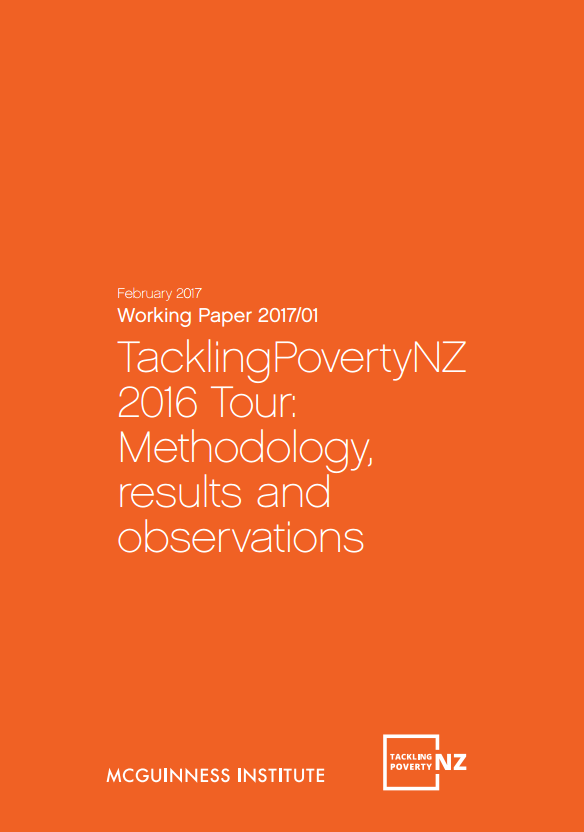As part of the follow-up to the 2016 TacklingPovertyNZ workshop tour, we will be posting one blog a day over the next few weeks to accompany the workshop speaker videos published on our YouTube channel.
Watch Dr Girol Karacaoglu, then Chief Economist, New Zealand Treasury, discuss the Treasury’s higher living standards framework and the Treasury’s current approach to poverty at the one-day Gisborne TacklingPovertyNZ workshop on 31 August 2016 in the video below.
Girol shared the shifting priorities of the Treasury with the participants. One of the examples he gave was that once every four years, the Treasury makes a report looking 40 years into the future. The last time this was undertaken, in 2013, the priorities focused on ‘affording our future’, and the ageing demographic of New Zealand. This time, the Treasury is asking communities what their issues are looking like 40 years forward. They are finding that poverty, environmental, inequality, social and economic issues are the main concerns of New Zealanders.
With this in mind, Girol spoke of the assumption that because we have this level of information about poverty, we can easily solve it. This is not the case. Currently, our system is not designed to bring together all of the siloes (e.g. social development, economics, education, etc.) to work collaboratively on creating outcomes for citizens. Alternatively, Girol proposed that we need to turn the picture upside down, and support solutions that are emerging within communities. The vision moving forward is to create a national database, where information about all of the experiments being undertaken in different communities is held. This would aid in expanding successful initiatives from one community to others throughout the country, and help to support central government subsidisation for their expansions.
Girol concluded by encouraging participants, explaining that if the proposals envisioned at the workshop and other similar gatherings are real and concrete, then as a collective group we may be able to request the government to ‘come to the party as an equal partner, not to tell us what to do but to support us in solving our own problems.’
About the TacklingPovertyNZ 2016 tour
The 2016 tour was a response to a 2015 three-day workshop that brought together 36 participants aged 18 to 25 representing a diverse range of backgrounds from throughout New Zealand. Participants found that ‘assuming that one solution will work everyone indicates a failure to address cultural disparities and injustices, and an ignorance of the diversity of our population’. The purpose of the 2016 tour was to build and share ideas on how to tackle poverty, come up with local solutions and connect like-minded people within communities.
The Gisborne workshop was one of six, along with workshops in Queenstown, Manawatu, Rotorua, Kaitaia and Kaikohe. A discussion paper for each area visited has been published on our website. These papers are specific to each community and together form a series showcasing insights from individuals who attended a one-day workshop in their local community.

To learn more about the tour, read Working Paper 2017/01 – TacklingPovertyNZ 2016 Tour: Methodology, results and observations here. This paper brings all the outputs from the six workshops together and aims to illustrate the diverse range of challenges and opportunities existing in communities.
In 2017 we would like to build on these findings. There was a lot to learn and digest, and we are still working through what this means in terms of public policy.
To stay up to date with Project TacklingPovertyNZ, subscribe to the newsletter here.

